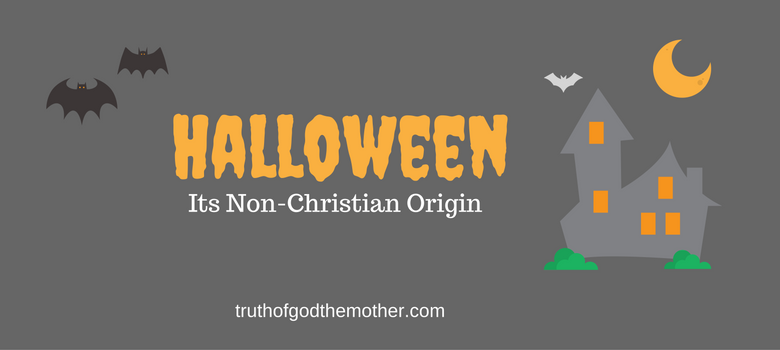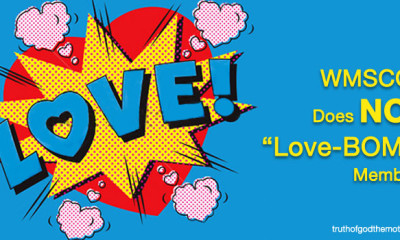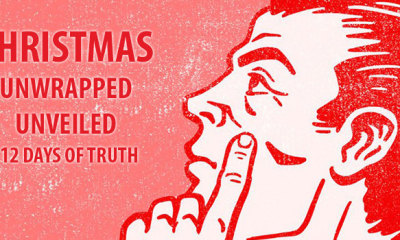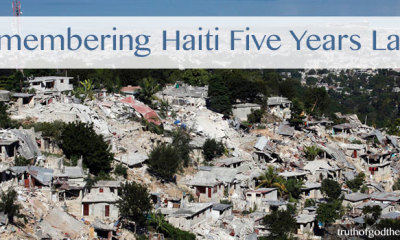The Origin of Halloween
Halloween is one of the most popular and favorite holidays in the United States. It’s the country’s second largest commercial holiday (next to Christmas), with Americans spending an estimated $6 billion annually. It’s a time for parading, trick-or-treating and showing your creative side with costumes. But what is behind this commercialized holiday? Is it really just a community and family-friendly holiday? What is the true origin of Halloween? And, most importantly, is it a holiday Christians should celebrate?
The Origin of Halloween
Halloween goes back about 3,000 years to the ancient Celtic festival known as Samhain, celebrated on November 1st.
The Celts lived in what is today northern France, the United Kingdom, and Ireland. As an agricultural community, they worshiped nature — trees and the sun god, known as Belenus. The Celts believed they were descendants of the god “Dis”— or the “god of the dead.”
Samhain was a celebration of the new year. It was the end of the harvest and beginning of winter. So days were now darker and it was a time associated with death.
The Celts believed that on October 31st, the night before Samhain, our world collided with the spiritual world, and ghosts, evil spirits and witches roamed the earth. They worried these spirits might ruin their crops and harm them. Not only did people dress in grotesque masks and costumes, typically made from the heads and skins of animals to frighten the spirits but they also offered food to keep the ghosts happy.
“The Celts believed that the gods controlled the sun. And the shortening days were a sign of their awesome power so they built bonfires to honor those gods and to pray for the return of the sun. To thank the earth for giving up her bounty at harvest time the Celts offered the gods blood sacrifices. Cows, horses and other animals were thrown onto huge bonfires.”
Romans Adopt Samhain
Around 43 A.D., Rome conquered the Celtic land and inhabited it for 400 years. As a result, the Romans added Celtic traditions to their own. They integrated two Roman pagan festivals into the festivities of Samhain — Feralia and Pomona. Feralia commemorated the passing of the dead in late October. The festival of Pomona was in honor of Pomona, the goddess of fruit and trees.
On May 13, 609 A.D., the Roman Catholic Church established the feast “All Martyrs Day” after Pope Boniface IV dedicated the Pantheon in Rome to honor all Christian martyrs.
In 800 A.D., Pope Gregory III moved the celebration date to November 1st. He also expanded the feast to include all saints, not just martyrs, calling it “All Saints Day” or “All Hallows Day.” Eventually, the night before All Hallows Day became All Hallows Eve — Halloween.
In 1000 A.D., the Catholic Church went a step further and designated November 2nd as “All Souls Day” to honor the dead — whether saint or not. They celebrated it “similarly to Samhain, with big bonfires, parades, and dressing up in costumes as saints, angels and devils.”
By 1556, “Allhallowtide” — the three days from the eve of All Saints Day to All Souls Day — became almost an obligatory holiday in Europe. People mourned the dead and dressed in black. They also gave out soul cakes in memory of the dead.
During the Middle Ages, people also began the practice of “souling.” Peasants went door-to-door begging for food in return for prayers for the dead. This practice probably resulted in today’s custom of trick-or-treating. People also dressed in costumes and went door-to-door singing in exchange for food. By the end of the 1700s, there were many references in literature to the term “Halloween,” a derivation of All Hallow’s Eve.
Halloween Comes to America
The Puritans had a very limited celebration in the New England colonies due to their rigid Protestant beliefs. In the first half of the nineteenth century, only certain parts of the country celebrated Halloween.
However, during the second half of the 1800s, an influx of Irish and Scottish immigrants brought Halloween to the rest of the colonies and it spread nationwide.
In the early 1900s, Halloween became a mainstream holiday in America. Companies also started the mass production of costumes in the 1930s. And today, Halloween has become a multi-billion dollar holiday.
So what is so wrong with celebrating Halloween?
As a non-Christian, there is nothing wrong with celebrating Halloween. As a Christian, everything about the celebration of Halloween is against biblical teachings.
The spirits of the dead cannot cross over to the physical world.
Halloween, which is essentially the celebration of Samhain, is based on the believe that, on that night, the spiritual world and the physical world collide and the spirits of the dead can affect us. This is not biblical.
Ecclesiastes 12:5-7 Then people go to their eternal home and mourners go about the streets . . . and the dust returns to the ground it came from, and the spirit returns to God who gave it.
The Bible teaches that the spirits who have died are confined to the spiritual world and cannot cross over to the physical world.
Luke 16:22 (NLT) “Finally, the poor man died and was carried by the angels . . . And besides, there is a great chasm separating us. No one can cross over to you from here, and no one can cross over to us from there.”
Once a person dies, the spirit returns to God. It does not go to purgatory, as the Roman Catholic Church teaches, and it cannot roam the earth to do us any good or harm, as the celebration of Samhain implies.
Christians must not worship God as pagans worship their gods.
It is clear that Halloween is a pagan celebration. And God clearly warns Christians against pagan teachings and against worshiping God the way pagans worship their gods — despite the teachings of the Roman Catholic Church.
Deuteronomy 12:30-32 (NLT) “. . . do not fall into the trap of following their customs and worshiping their gods. Do not inquire about their gods, saying ‘How do these nations worship their gods? I want to follow their example.’ You must not worship the Lord your God the way the other nations worship their gods, for they perform for their gods every detestable act that the Lord hates. They even burn their sons and daughters as sacrifices to their gods. So be careful to obey all the commands I give you. You must not add anything to them or subtract anything from them.”
1 Corinthians 10:20 No, but the sacrifices of pagans are offered to demons, not to God, and I do not want you to be participants with demons.
During the Dark Ages, in an effort to expand its power, the Roman Catholic Church accepted pagan rites and allowed pagans into the church along with their practices. Christianity must be based on the Bible. And the Bible does not teach any of the practices or beliefs associated with Samhain or with Halloween. This is why it’s against Christianity to celebrate Halloween. Instead, I encourage you to visit your local World Mission Society Church of God to understand more about the worship that is acceptable to God.
References:
New York Daily News
History.com




It’s so natural for God’s people to follow His commands! ‘According to the Bible!’ If someone never keep God’s commands, then, he has nothing to do with Him. Such belief cannot save him at all.
Passover is the most important feast for human. Because it is the promise of forgiveness of sins and eternal life. So it is written in the Bible that Jesus really wanted for us to keep it. Why are the people busy to keep worldly feasts, not to keep the biblical feasts?